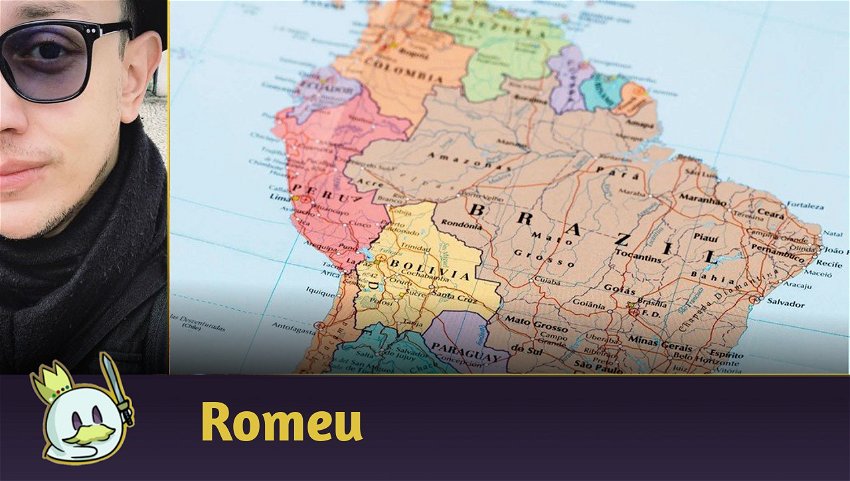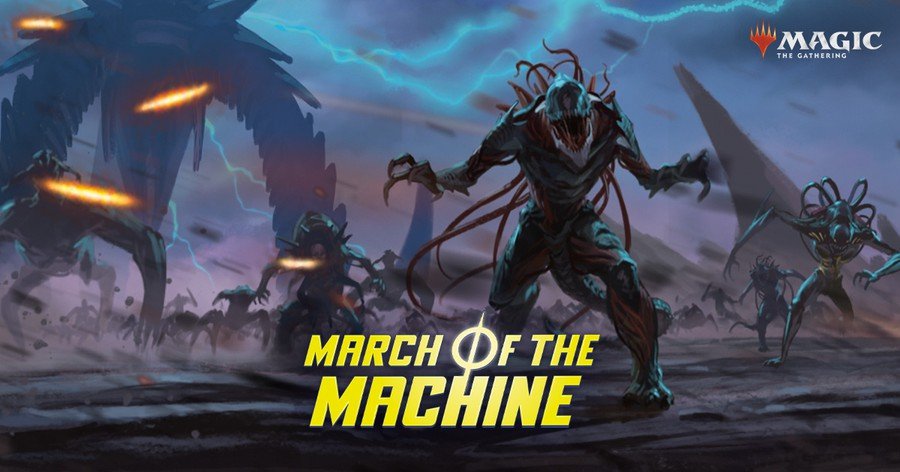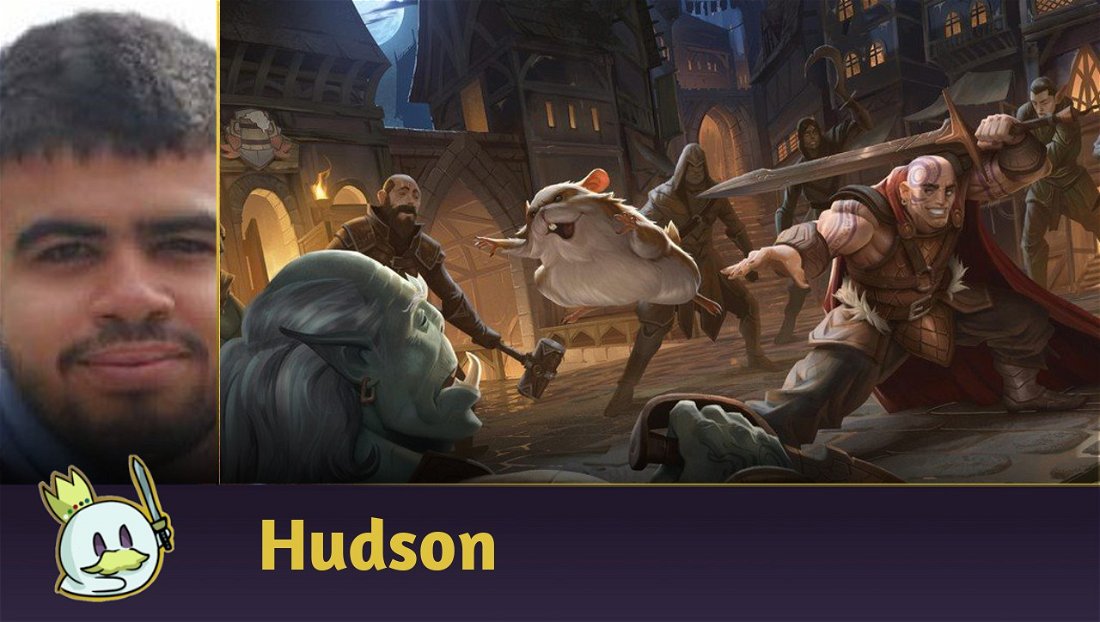Last Tuesday, the former Wizards of the Coast's Brazilian Community Manager, Carolina Moraes, posted on her Twitter that, along with the rest of the Latin America team, she had been dismissed as part of the company's renovation project. The announcement reverberated across social media and raised questions about Magic's future in Latin America.
In this article, we'll cover what the end of Wizards' digital relationships with Brazil and Latin America means for the game.
However, it is not up to us to evaluate or criticize Carolina's performance as a community manager, given that each professional knows exactly where their limitations lie in relation to their employer, in addition to taking a course of action based on the expectations and demands of the company. It is not up to me, nor to Cards Realm, to point out successes and failures over the years that the communicator was in this role.
Ad
What is a Community Manager?
The first point we must address is that few people have a genuine understanding of what a Community Manager does, so let's clarify this point to move on with the article.
Community Manager is a communication professional who manages a company's or brand's online relationship with its target audience through a stable bond with customers, fans and users. Its main function is to keep the brand name engaged enough for it to remain relevant in its niche through interaction on networks, advertising and other content that is relevant both to the loyal audience and to new customers.
In summary, it is possible to state that the Community Manager are the "public relationship" of that brand or company within the digital universe and have as their main resource the online engagement of their fans and users to ensure that that product is always 'on the hype' through interaction.
The Precedent
Magic has undergone some significant changes in recent years, and some examples include the relentless amount of product releases, the end of the Pro League, and the return of the Pro Tour, but also going through other points such as the end of product releases in languages such as Russian, Korean, and Traditional Chinese in July 2022, plus some English-specific product language changes and restrictions.
Which raises the main concerns of the community with the end of the Latin American communication sector:
Will Magic stop being published in Brazilian Portuguese?
For that question, the clearest answer currently would be not yet. Magic is a game, but it is also a Hasbro product to be sold, and the company demonstrates this every week with a different novelty, such as Cauê Moura, musician Lucas Silveira from the band Fresno, streamer Pri Vitalino and former soccer player and now sports commentator Craque Neto playing a game.
But by existing for so long and maintaining a mostly loyal audience, Magic managed to establish its own ecosystem powered by supply and demand of its respective pieces of cardboard inside assorted packets, from which a strong secondary market was created by the need for consumers to obtain the desired cards to compete in tournaments and/or play in casual formats with their friends - and the amount of money moving through these little pieces of cardboard in the world on a daily basis is no small matter, so for Magic to stop selling, this ecosystem would need to wither - and despite Hasbro's many attempts to implode the game's long-term health, as pointed out by Bank of America for the second straight quarter, this ecosystem continues to show little or no sign of crisis on a global scale.
This means that, out of the desire to play and compete, players will continue to buy cards, and as long as they continue to buy, there will be stores and distributors willing to meet their demand, and as long as those exist, Magic will be able to sell almost on its own because the economic ecosystem around the game has been established for thirty years and continues to run smoothly, and with or without Community Manager, the Latin American audience engaged in the game will continue to purchase cards, decks and other related products.
Ad
Therefore, why invest money in creating engagement and publicity for a specific region when you can save money by centralizing these resources in a single global communication channel in a language that the captive public is already used to and/or when the social networks themselves offer machine translation features?
Even Brazilians engaged more frequently with the contents of the mothership than with the profile in Portuguese, due to the high speed with which information is transmitted on networks such as Twitter or Instagram. It only takes seconds to follow one or two influential names here or there, and you already know the latest news before Wizards_MagicBR itself schedules a post for the local community.
The content creators and influencers are also to blame
Working with Magic is a peculiar task, as there's always something going on, especially in modern times when previews come out earlier and earlier. And even when there are no spoilers to discuss, there is always some new deck, an interesting tech to fight against the Metagame of a format, a curiosity about a certain topic, etc. And as with every game and/or product in the entertainment industry, there are autonomous people and portals entirely dedicated to addressing and discussing this information here in the game - it's even the work we do here at Cards Realm!
For every article, video, stream or even tweet we make about Magic, we are also doing the service of disseminating information and generating free engagement for the game. And when hundreds or thousands of people do this daily, wouldn't they be a much more efficient propaganda machine than a regional Community Manager, and a lot cheaper, since very few of us are actually paid by Wizards of the Coast itself to promote their product? The truth is that, apart from a gift or another given by the company to some select and/or raffled groups, we don't even know if there are people dedicated to the game who are, in fact, paid to promote it.
It is clear that each communicator and/or portal has its objective in talking about Magic: a portal like ChannelFireball wants to guarantee the success of its marketplace, a streamer or YouTuber intends to guarantee the monetization of their videos to generate income, a website wants clicks to increase its traffic and/or influence on the networks, and there's nothing wrong with that - but we need to recognize that our engagement with the game is also responsible for the decisions the company makes regarding its official communication.
Magic is about impermanence, and if we disseminate the information that the mothership presents as quickly as possible to ensure our individual success, it is clear that a company can therefore consider that we are a large enough source of marketing that doesn't demand investment or resources to disseminate information and keep the brand's name engaged. The ecosystem already operates on its own.
They don't care about Latin America?
There is no correct answer to this question. A company cares about its consumers as they generate revenue and profit for it, and saying that ).push({});








— 评论0
成为第一个发表评论的人